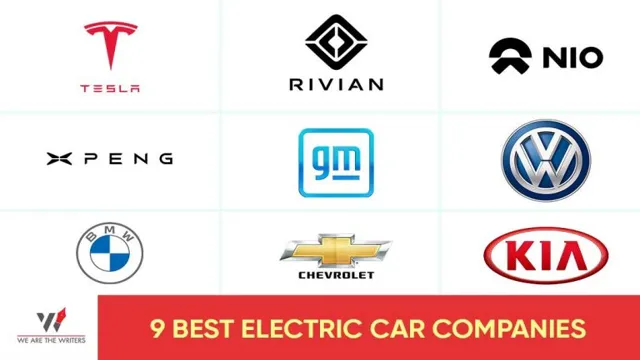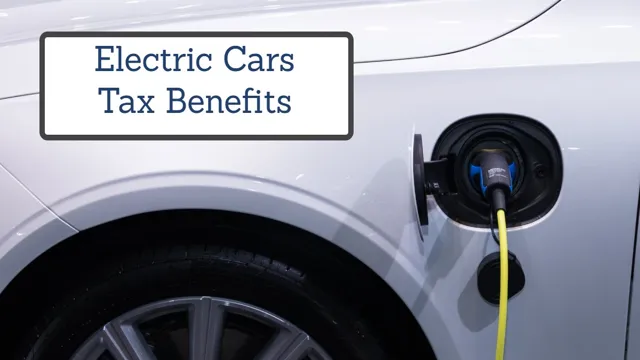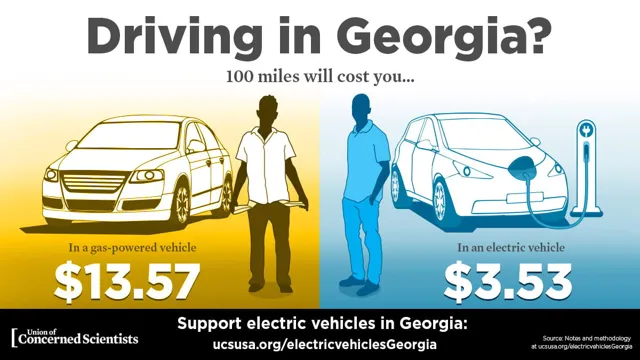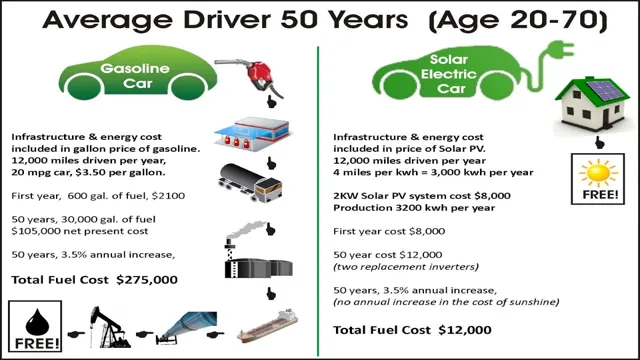Electrifying Success: How Your Company Can Benefit from Electric Cars
Electric cars are quickly becoming a popular choice for environmentally-conscious drivers, and with their increasing popularity comes a growing market for companies that benefit from their production and sale. From manufacturers to utilities and even charging station providers, the shift towards electric cars has the potential to affect a wide range of industries. In this blog, we’re going to explore some of the companies that stand to gain the most from the rise of electric vehicles, and why they’re poised to succeed in the coming years.
So buckle up, grab your charging cables, and let’s take a closer look at these industries and the ways they’re getting charged up for the future.
Automakers
As electric vehicles continue to gain popularity, several automakers are reaping the benefits. One of the top companies that have been leading the charge in the electric car market is Tesla, with its line of sleek electric sedans and SUVs. Other automakers like Nissan, BMW, and Chevrolet have also invested heavily in the development and marketing of their electric car models.
These companies have seen significant returns on their investment, as more drivers look for environmentally friendly and cost-effective transportation options. In recent years, even luxury car brands like Audi, Porsche, and Mercedes-Benz have started producing EVs to meet this growing demand. As electric car technology continues to advance, more automakers are expected to follow suit and benefit from this trend.
The electric car market represents a substantial opportunity for businesses that are willing to invest both time and money in this emerging industry.
Tesla leading the pack
It’s no secret that Tesla has been leading the pack in the automotive industry for the past several years. The company has made major strides in the electric vehicle market, with their vehicles being hailed as some of the best on the market due to their impressive range and performance capabilities. Tesla has paved the way for other automakers to follow suit, with more and more companies investing in EV research and development to keep up.
With the recent announcement of the Tesla Model S Plaid, the company has once again proven that they are ahead of the game, offering a car that can go from 0-60 in under two seconds. While other automakers are sure to follow suit, it’s clear that Tesla will continue to be the leader in EV technology for years to come.
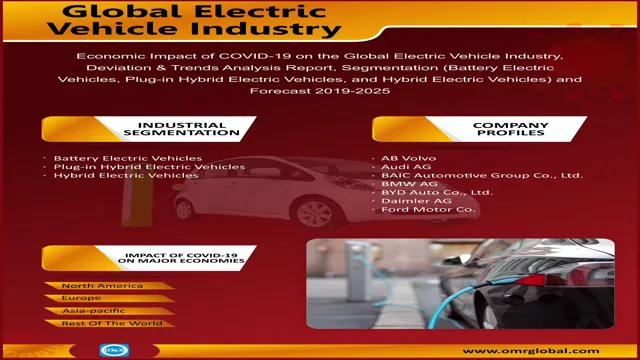
GM and their EV commitment
GM (General Motors) has committed to producing a lineup of electric vehicles (EVs) in the coming years as part of its strategy to become a carbon-neutral company by 2040. This move comes as many other automakers also pivot towards electrification as a way to reduce tailpipe emissions and meet increasingly stringent environmental regulations. By 2025, GM plans to introduce 30 new EV models globally, with plans to make EVs 40% of its U.
S. lineup by the end of that year. This marks a significant shift for GM, which has historically focused on gas-guzzling vehicles.
However, with technological advancements and increasing demand for electric power, GM is taking steps to adapt to changing market trends. It’s an exciting time for the auto industry and for consumers as we witness a shift towards more sustainable modes of transport.
Hyundai’s innovative approach
Hyundai has been making waves in the automotive industry with their innovative approach to designing and manufacturing cars. Their commitment to sustainability has brought them praise from customers and industry experts alike, with the brand being recognized as a leader in environmentally friendly vehicle production. Through the use of recycled and eco-friendly materials, as well as the implementation of hybrid and fully electric models, Hyundai has demonstrated a dedication to reducing their carbon footprint and contributing to a more sustainable future.
But that’s not all – the brand has also been pushing the boundaries when it comes to the features and technology included in their vehicles. From their safety innovations to their state-of-the-art infotainment systems, Hyundai has consistently been on the cutting edge of automotive advancements. With their focus on both sustainability and innovation, it’s no wonder that Hyundai continues to be a top choice for car buyers looking for a vehicle that is both stylish and environmentally conscious.
Battery Manufacturers
Battery manufacturers are some of the companies that benefit greatly from the rise of electric cars. These manufacturers are crucial in the production of lithium-ion batteries that power electric cars. With the increased demand for electric cars, battery manufacturers are experiencing a sharp rise in demand for their products.
Some of the major battery manufacturers include Panasonic, LG Chem, and CATL. These battery manufacturers have invested heavily in research and development to produce batteries that are more efficient, reliable, and have longer ranges. As electric cars become more popular, battery manufacturers are expected to continue to benefit from this trend by producing more batteries to meet the ever-increasing demand.
Panasonic’s partnership with Tesla
Panasonic is one of the leading battery manufacturers in the world, known for producing high-quality lithium-ion batteries that power various electronic devices. In recent years, the company has partnered with Tesla to produce the batteries used in their electric vehicles. This partnership has been a crucial component of Tesla’s success, as Panasonic has been able to provide them with a consistent supply of high-capacity batteries that allow their vehicles to have a longer driving range.
In addition, Panasonic has invested over a billion dollars in the production of Tesla’s Gigafactory, enabling them to scale up their battery production and drive down costs. The collaboration between Panasonic and Tesla has been a win-win situation, as both companies have been able to benefit from the growing demand for electric vehicles. As the world continues to move towards a more sustainable future, it’s clear that battery manufacturers like Panasonic will play a crucial role in powering the transportation sector.
LG Chem and their diverse clientele
LG Chem has established itself as one of the leading battery manufacturers in the market today. Their clientele is diverse, ranging from automakers, home appliance manufacturers, to energy storage system providers. Their batteries are known for their high efficiency, long life span, and reliability, making them a popular choice across various industries.
LG Chem’s batteries are used in electric cars and buses, reducing carbon emissions and providing a sustainable solution for transportation. Homeowners can also benefit from LG Chem’s batteries for their solar panels, allowing for energy storage and usage during peak hours. Energy storage providers can rely on LG Chem’s batteries for their power grid applications, providing a stable and secure energy source.
LG Chem’s commitment to innovation and sustainability has made them a reputable name in the battery industry, catering to a wide range of clients with their high-quality products.
CATL’s dominance in the Chinese market
When it comes to battery manufacturers in China, Contemporary Amperex Technology Co. Ltd. (CATL) is currently dominating the market.
With a market share of nearly 50% in 2020, CATL has positioned itself as an essential player in the electric vehicle (EV) battery market. The company’s success can be attributed to its focus on research and development, consistently delivering high-quality products, and providing comprehensive after-sales support. Additionally, CATL has a vast customer base, including major automakers such as BMW, Tesla, and Volkswagen, further solidifying its position in the market.
Despite its dominance, CATL faces fierce competition from other battery manufacturers, such as BYD and LG Chem, as they try to gain a larger market share. Nevertheless, CATL’s success in the Chinese market is a testament to its commitment to quality, innovation, and adapting to the changing needs of the EV industry.
Energy Companies
Electric cars are quickly becoming more popular as people begin to prioritize environmentally friendly transportation options. As a result, several energy companies are poised to benefit from the increased demand for electric cars. First and foremost, electricity providers stand to gain as they provide the power needed to charge these vehicles.
Companies such as Duke Energy and Dominion Energy offer EV charging stations, making it convenient and simple for consumers to charge their electric cars. Additionally, vehicle manufacturers, such as Tesla and GM, are investing heavily in lithium-ion batteries and renewable energy technology to power their vehicles. This investment has the potential to greatly benefit energy storage and renewable energy companies, such as Tesla, as demand for electric cars continues to grow.
Finally, oil and gas companies may also benefit from the demand for electric cars as many of these companies have also invested in renewable energy technology. It’s worth noting, however, that this shift towards electric vehicles may also pose a threat to traditional oil and gas companies as they may need to shift their focus towards alternative energy sources in order to remain competitive.
BP’s investment in EV charging stations
BP, one of the biggest energy companies in the world, is taking a step forward in the electric vehicle (EV) sector by investing in the installation of EV charging stations. As the demand for electric cars increases, BP recognizes the need for more accessible charging stations. In collaboration with several partners, they have introduced the “BP Chargemaster” initiative that aims to have 70 ultra-fast charging stations installed across the UK by 2020.
This investment by BP is a clear indication that they are committed to providing sustainable energy solutions and reducing carbon emissions. It also serves as an opportunity for them to branch out from traditional fossil fuels and explore alternative energy sources. It’s great to see energy companies like BP embracing change and taking steps towards a cleaner, more sustainable future for us all.
Shell’s push for clean energy
Shell, one of the largest energy companies in the world, has been pushing for clean energy solutions in recent years. This move comes as a response to the growing concern over greenhouse gas emissions and the urgent need to address the issue of climate change. Shell has been investing in various renewable energy sources such as wind, solar, and biofuels.
They are also exploring new technologies such as hydrogen fuel cells and carbon capture and storage. The company aims to reach net-zero emissions by 2050 and has set short-term targets to reduce their carbon footprint. One initiative taken by Shell is to switch to electric vehicles (EVs) in their operations and supply chains.
They are also working towards developing EV charging infrastructure and battery technologies. Shell’s push for clean energy not only benefits the environment but also positions them as a leader in the industry and attracts a new generation of environmentally conscious consumers.
Ride-Hailing Companies
Ride-hailing companies like Uber, Lyft, and Didi have been quick to embrace the shift towards electric cars. This is because electric cars are much cheaper to maintain and operate than traditional gasoline cars. Additionally, electric cars have lower emissions, which are important for ride-hailing companies that want to be seen as environmentally friendly.
Companies like Uber and Lyft have even set ambitious goals to transition to fully electric fleets by 2030. By doing so, they not only reduce their carbon footprint but also save money in the long run. As more and more consumers demand electric ride-hailing services, these companies are well-positioned to benefit and gain market share.
Overall, it’s clear that ride-hailing companies that prioritize electric cars are better positioned for future success in the rapidly evolving transportation industry.
Uber and their EV adoption plans
Uber, EV adoption, ride-hailing companies Uber, like many other ride-hailing companies, is looking to embrace electric vehicles (EVs) as a way to reduce their carbon footprint. Uber is aiming to make all of their rides in the United States, Canadian, and European cities fully electric by 2030. The company even offers special incentives to drivers who go electric to make the transition more appealing.
Overall, this commitment to reducing emissions is a positive step in the right direction for ride-hailing companies. Not only will more electric vehicles on the road help reduce pollution, but it will also create a more comfortable and quiet ride for passengers. It’s exciting to see companies like Uber take a proactive approach towards sustainability and environmental responsibility, and hopefully, other ride-hailing companies will follow their lead.
Conclusion
In conclusion, electric cars are not only environmentally friendly, but they also benefit companies in numerous ways. From reducing reliance on fossil fuels to providing a platform for innovation and research, electric cars offer several opportunities for companies to grow and succeed. Additionally, companies that embrace electric cars can attract a new generation of eco-conscious consumers who prioritize sustainability.
So if you’re a company looking to make a positive impact and stay ahead of the curve, investing in electric cars is a smart move that will benefit both your business and the planet in the long run.”
FAQs
How do electric cars benefit the environment?
Electric cars do not emit harmful pollutants like gases and smoke, making them environmentally friendly.
What is the cost difference between owning and running an electric car compared to a gas-fueled car?
Electric cars have a lower operational cost as electricity is cheaper than gas, and they require less maintenance, resulting in cost savings in the long run.
Are there any incentives for people who buy electric cars?
Many countries provide financial incentives for buying electric cars, which includes tax rebates, reduced insurance rates, and freedom from congestion charges in some cities.
What companies are investing in electric car technology?
Several companies are investing in electric car technology, including Tesla, General Motors, Ford, and Volkswagen, and a multitude of startups working solely on electric vehicles.
